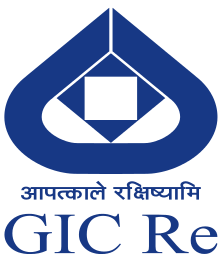India is having problems with foreign nuclear technology providers because a controversial 2010 nuclear liability law. The law states that nuclear equipment suppliers are liable for damages caused by nuclear accidents. Since the 1950s when the United States was the only exporter of nuclear technology, the international standard with respect to liability has targeted the operators of nuclear power plants and not companies that provided the technology for nuclear power plants.
India's 2010 law was ultimately based on the Indian response to the Bhopal poison gas disaster in 1984. Bhopal is considered to be the world's deadliest industrial accident. Union Carbide owned the plant where the accident took place and families of victims are still after Union Carbide for compensation. Estimates of the number of deaths caused by the accident vary from two to four thousand with forty thousand people seriously injured.
In 2008, the U.S. and India signed an agreement on nuclear cooperation. The 2010 Indian liability law has basically been blocking major nuclear technology suppliers, including the U.S., from shipping nuclear technology to India which has serious power supply problems and wants to increase their nuclear power by thirteen times its current level.
GE-Hitachi, Westinghouse Electric Company and France's Areva have received authorization to build two reactors each in India. Although the deals were signed years ago, no construction has yet taken place partly because of the Indian liability law. Even Indian manufactures of nuclear technology are afraid to sell equipment to the Indian government because they are concerned about being held liable in case of a nuclear accident.
Now a reinsurer called GIC Re that is run by the Indian government is developing a proposal for a "nuclear insurance pool." This proposal would indemnify nuclear technology suppliers against any liability in case of an accident. Companies supplying equipment to construct Indian reactors would buy insurance from the pool and then pass the charges along to the purchasers of the equipment. An alternative proposal suggests that the Indian Nuclear Power Corporation of India could buy insurance for nuclear technology suppliers. These proposal could be implemented more quickly and easily than trying to change the 2010 law. Major suppliers of nuclear technology are cautiously optimistic but say that they need to see more of the specifics of the proposals which are still in development.
In December of 2014, Vladimir Putin, President of Russia, visited India. One of the major topics for discussion was a proposal for Russia to supply India with a dozen nuclear reactors in the next two decades. There are already two Russian built nuclear reactors in India. An Indian nuclear affairs expert said that Russia seems to believe that it can construct the promised reactors under the existing liability laws without any problems. Russia intends to make export of nuclear technology and fuel a major part of its plans for international trade.
India would be better served by investing in renewable energy sources, conservation and efficiency instead of building more nuclear reactors.
General Insurance Corporation of India:

